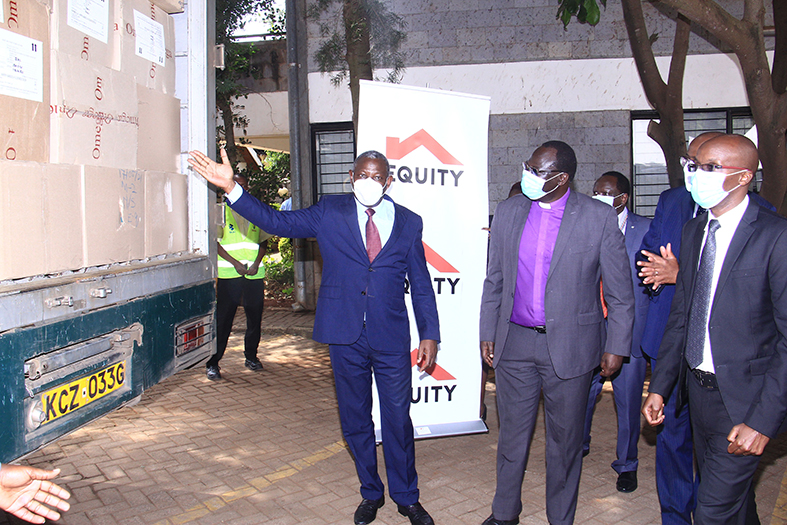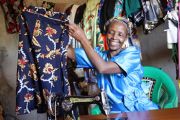
Before Kenya recorded its first case of COVID -19 infection in March 2020, we had already witnessed how the global pandemic had seriously hit countries with even more robust healthcare systems.
If there was one thing that this pandemic taught us from the onset, it was that fighting this virus was not going to be a government and health workers–only affair. Globally, citizens were already acknowledging the difficult conditions in which frontline workers were battling to save lives.
We saw people lining up the streets in these cities every evening as the day’s shift came to a close. Clapping, hooting and waving as they showed appreciation to the brave healthcare workers who were at the frontlines of the fight against the pandemic. Other than reminding us about the values of humanity, these scenes served to hint to us that to win against this virus, we all had a role to play.
As we got to July 2020 and were approaching the peak of the first wave in Kenya, the country’s healthcare system started to feel the brunt of the pandemic. Limited isolation spaces in government facilities, high cost of care in private facilities, which made them inaccessible to their regular clientele, and a sharp shortage of PPE and other medical equipment threatened the country’s efforts to contain the spread of the virus.This pandemic brought to fore the need for government, private and faith-based healthcare providers to work together to manage the infection numbers.
Mission hospitals have over the years supplemented the country’s public healthcare system through the provision of quality and affordable health services.
During this unprecedented times, these faith-based facilities have proven to be an integral part of the National and County COVID-19 pandemic emergency response infrastructure. They have set aside isolation wards, ICU beds, oxygen treatment support facilities, trained staff and have established protocols for COVID-19 screening, treatment, infection prevention and control.
This has escalated the mission hospitals’ need for PPEs for frontline staff, and other medical equipment.
The current high cost of PPEs and other associated medical consumables not only makes it difficult for mission hospitals to care for COVID-19 patients, but also challenging for them to provide their other patients with the care they need in a safe environment. A majority of these facilities are located outside Nairobi and some of them, like Kijabe, Chogoria, Kikuyu and Tenwek Mission Hospitals, provide highly specialized care to patients who cannot afford to seek treatment in private health facilities because of prohibitive costs.
Unlike government health facilities which are funded by the exchequer and private hospitals, which operate on a business model, mission hospitals are essentially run as charitable institutions inspired by faith foundation and commitment to compassionate service relying on donations and the heavily subsidised fees that they charge their patients. On many occasions, these health facilities have to waive fees for the vulnerable, needy, and very poor patients.
It is for this reason that we are grateful for the donation of PPE kits worth KES 33 million made by Equity Group Foundation (EGF) and the Kenya COVID-19 Fund Board to support mission hospitals with active COVID-19 isolation units. Such donations allow us to continue offering compassionate care to all our patients at affordable costs.
While in the last few weeks we have noted a decline in COVID- 19 case positivity rates, we are not yet out of the woods. To date the country has recorded over 240,000 confirmed infections for those tested and unfortunately we have lost over 5,000 lives . Recently, while addressing the nation as the government reviewed containment measures, Health CS Mutahi Kagwe warned that Nairobi had run out of beds for COVID-19 patients. COVID-19 truly brought a strain on the health system.
With treatment and isolation spaces in public hospitals dwindling in the wake of this surge, and costs keeping many away from private facilities, mission hospitals are more likely to take on even higher numbers of new COVID-19 patients in need of hospital admission. Already, a majority of mission hospitals have designated isolation areas and units set aside to manage COVID -19.
While the donation from Equity and the Kenya COVID-19 Fund Board has gone a long way in plugging the shortfalls in the mission hospitals, we are still far off from being sufficiently equipped to handle the looming surge. This is an opportunity for more Kenyan corporates to come on board and provide the much-needed support to strengthen hospitals infrastructure and capacity for response at this critical time.
Authored by Dr. Samuel Mwenda, General Secretary, CHAK.











